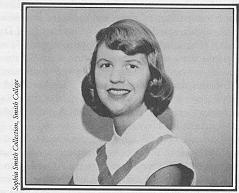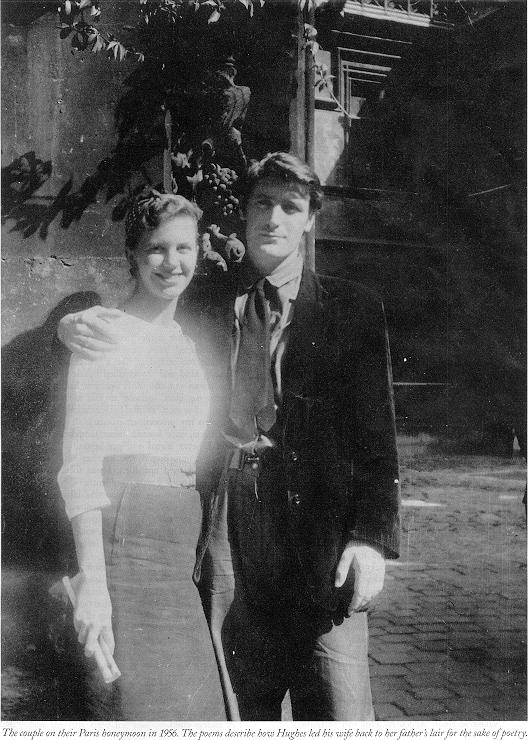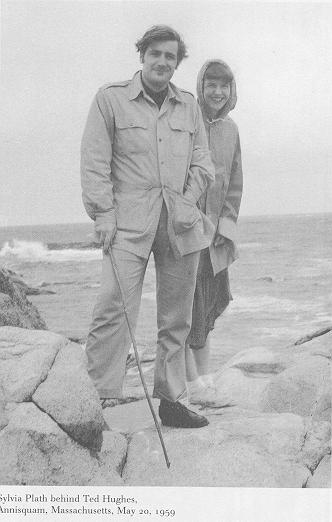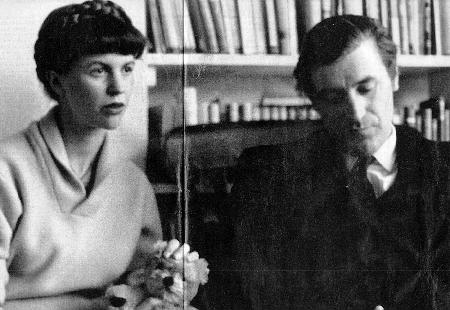Sylvia Plath: Her Poetic Style
Plath's style breakdown by her husband, Ted Hughes went in three modes; Juvenilia, early 1956-late 1960 and late 1960-Febrary 11, 1963. Sylvia's goal as a writer was to control and manipulate experience with an informed and intelligent mind.

Juvenilia
are poems written mostly in Sylvia's early teenage years that reflect her deply entrenched set of personal values and
symbols. As Hughes puts it, "an enclosed cosmos circus". Among which 'Dirge of a Joker' is a marvel. As one critic stated, "One can almost hear sylvia counting syllables, gauging rhymes and struggling over synonyms during this period.


Early 1956-Late 1960
was influenced by Hughes and his marriage to Plath. Ted monitored Sylvia's work closely during this period. A period also marked by Sylvia's rapidly shifting style. Plath did this in poetic experiment trying to find her own personal voice. With
each set of shifts Sylvia left behind a group or Family of poems which all share a general likeness and are asociated with a particular place and time. These were collected later and set in Sylvia's first published collection, "The Collossus". Many of these poems, such as the title work, use the father as a vhicle through which Sylvia explored the past. One of the most impressive poems from this period is a marvelous piece of
self-centered lyricism entitled, 'Soliloquy of a
Solipsist".

Late 1960-63
is perhaps her greatest legacy. This is when Sylvia was working mostly on the "Ariel" poems. It is also during this period of artistic release that Plath, as she puts it, "Stopped being Roget's mistress". This meaning of course Roget's Thesaurus. Among the poems created during this time is Plath's most famous poem, 'Daddy'.
These poems are described as sharing a "Sense of human experience as horrid and ungovernable. The sense of all relationships as puppet-like and meaningless." It is during this period that Plath also had her artistic explosion creating sometimes three brilliant poems a day. Unfortunately, this period's literary success inversely parallels Plath's own personal downward spiral, which included Plath's breakup with husband Hughes andsubsequent breakdown during one of the coldest winters in recent history. Taking all this into account, it is not a huge leap of
intuition to see the impending doom that lay ahead for Plath.
Sylvia Plath's artistic movment is as wonderful as it is remorseful. Horrible that one with such talent was taken so soon. An ever evolving creature, one can only wonder at what marvel Sylvia might have been had she reached even 35. Perhaps Sylvia Plath would have found peace, but as she states in her novel, "The Bell Jar" "How did I know that some day-at college, in Europe, some where, anywhere-the bell jar, with it's stifling distortions wouldn't descend again."
With Plath's death, "Going in the full glory of some passion," as Joyce puts it, Plath ensured her own personal immortality and assured the fact that people would dedicate countless hours to asking one profoundly unanswerable question, Why?

For more biographical information
Click here
Back to my list of Poets
Back Home





